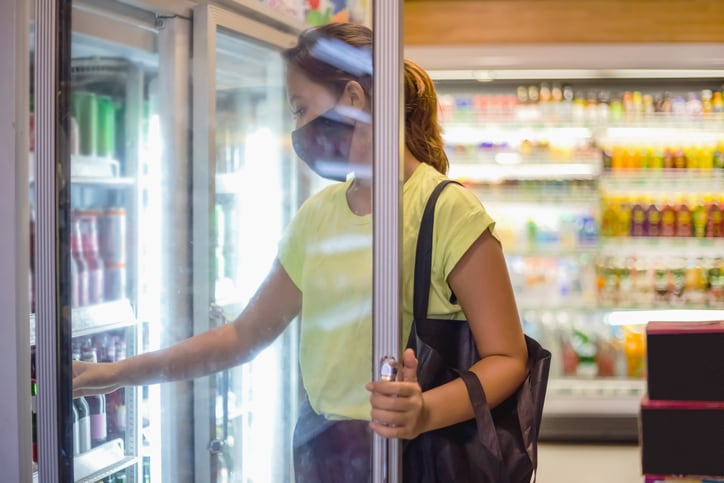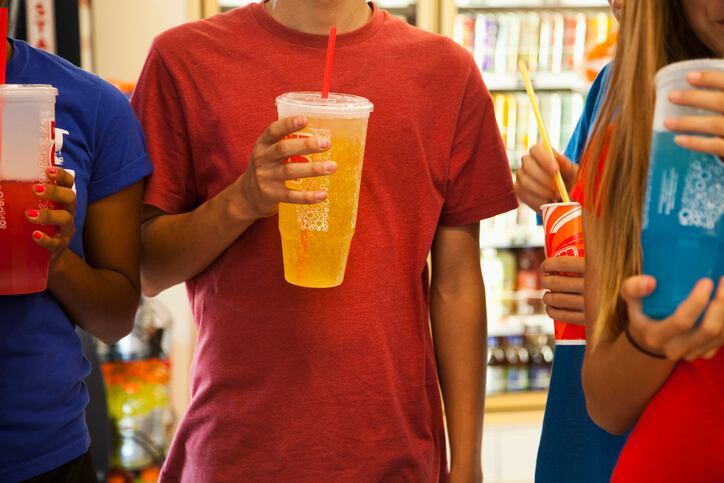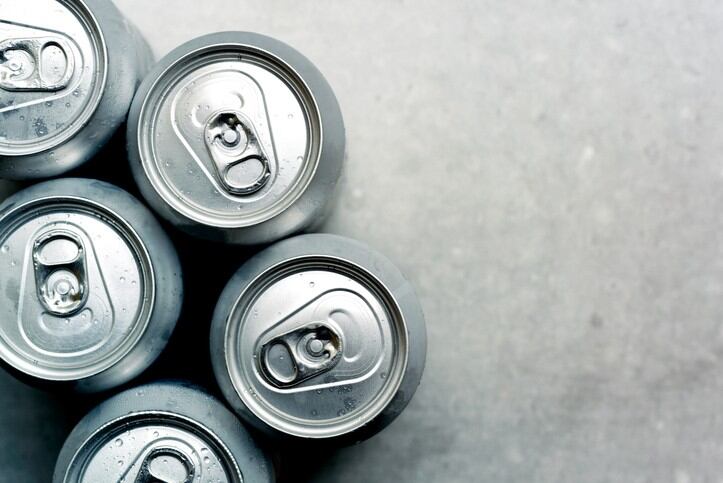While a number of places have introduced sugary drink taxes, legislation does not typically stipulate if and how taxes should be communicated at the point of purchase.
If public health authorities want such taxes to be effective, they must mandate that tags mention the added tax, say researchers. This is because consumers are adverse to taxes and so are less likely to purchase taxed beverages when they are reminded they are doing so.
San Francisco field study
Philadelphia, San Francisco, Seattle and Boulder are among the US cities with a sugar tax (while their global reach includes the UK, South Africa and Ireland).
Publishing their study in Psychological Science, researchers outlined their field study at two convenience stores in San Francisco. The city has a tax on sugary drinks of 1 cent per ounce (equating to an added 12 cents per 12-ounce drink).
Over the course of the eight-week study, the researchers rotated three different price tags.
One simply stated the price for the 12-ounce drink ($1.52); one stated the price and the message "Includes SF Sugary Drink Tax"; and one included the same message with the addition that the proceeds of the tax would support local university student programs.
All non-sugary drinks, which were not subject to the tax, simply stated the price of the drink at $1.40.
Tell people about the tax
The researchers compared sales of the drinks during the study period to the two immediately preceding weeks. During this time, the sugary drink tax was in effect, but there were no price tags on any drinks. They also compared sales to the two years preceding the tax.
Results showed that sales of sugary drinks were not lower during the two weeks before the study began, compared to sales in the two years before the tax. “Historical, field, and experimental data consisting of more than 225,000 purchase decisions indicated that introducing a $0.01-per-ounce sugar-sweetened beverage tax—without making it salient on price tags—had no significant effect on purchasing,” say the researchers.
“In other words, the tax itself did not reduce purchases of sugary drinks.”
However, they found the choice of tags during the study did affect purchases.
The share of sugary drinks bought when the tags simply showed the price (47%) was not significantly different from the two-week period before the study.
But the share of sugary drinks purchased did decline slightly (45%) when the tags mentioned the price included the added tax. Outlining student support programs had no added effect.
Most consumers who chose to avoid sugary drinks with the added tax instead chose a drink that was not subject to the tax: instead going for healthier beverages like bottled water.
How much is the tax?
However, the price tag should not state how much the tax is, say researchers. This is because consumers tend to overestimate how much a tax is (and if they know the real total, they would be more willing to pay it).
In an online study, they asked participants who drank sugary beverages to estimate what the tax would be on a 12-ounce can of a $1.52 beverage. The average estimate was 40 cents: much higher than the 12 cents actually levied in San Francisco.
Another study found that when consumers were told the tax was only 12 cents, they reported they were much more likely to still purchase the drink.
Study: Grant E. Donnelly, Paige M. Guge, Ryan T. Howell, Leslie K. John. 'A Salient Sugar Tax Decreases Sugary-Drink Buying', Psychological Science, 2021; 095679762110170 DOI: 10.1177/09567976211017022




